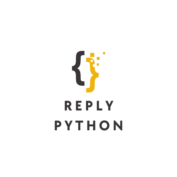 When diving into the world of programming, some languages stand out as particularly challenging to master. Understanding the intricacies of these complex codes can be a daunting task for even the most experienced developers. From the cryptic syntax of languages like Haskell to the intricate logic of Prolog, the journey to proficiency in these coding languages is not for the faint of heart.
When diving into the world of programming, some languages stand out as particularly challenging to master. Understanding the intricacies of these complex codes can be a daunting task for even the most experienced developers. From the cryptic syntax of languages like Haskell to the intricate logic of Prolog, the journey to proficiency in these coding languages is not for the faint of heart.
For those looking to push the boundaries of their programming skills, delving into the realm of brain-twisting codes can be both a frustrating and rewarding experience. Whether grappling with the abstract concepts of Lisp or the strict rules of Rust, mastering the hardest codes requires dedication, patience, and a willingness to embrace the mental challenge. As developers navigate the complexities of these languages, they unlock new levels of problem-solving abilities and expand their coding horizons.
Hardest Code to Learn
Mastering complex programming languages like Haskell, Prolog, Lisp, and Rust can be a challenging yet rewarding journey that demands dedication, patience, and a thirst for mental challenges.
Factors Influencing Difficulty
Learning difficult programming languages is influenced by various factors, such as syntax complexity, unique paradigms, steep learning curves, and limited availability of learning resources. The scarcity of developers proficient in these languages can also make it challenging to find mentorship and support when encountering obstacles.
Comparison Across Popular Programming Languages
When comparing the difficulty of languages like Haskell, Prolog, Lisp, and Rust to more popular ones like Python, Java, and JavaScript, the former stand out for their unconventional approaches to problem-solving, strict adherence to functional or logic programming principles, and demand for meticulous attention to detail. In contrast, widely-used languages often prioritize ease of use, readability, and extensive libraries, making them more accessible to beginners.
The Role of Programming Paradigms
Programming paradigms play a crucial role in shaping how developers approach problem-solving and code structuring. They act as guiding principles that influence the design and  implementation of software systems. Understanding the differences between various programming paradigms is essential for mastering complex languages like Haskell, Prolog, Lisp, and Rust.
implementation of software systems. Understanding the differences between various programming paradigms is essential for mastering complex languages like Haskell, Prolog, Lisp, and Rust.
In imperative programming, the focus is on describing how a program operates through statements that change a program’s state. On the other hand, functional programming emphasizes immutable data and pure functions without side effects. Developers working with Haskell or Lisp often need to adopt a functional programming mindset, which can be a significant shift for those more accustomed to imperative languages like Python or Java.
Object-oriented programming (OOP) revolves around creating objects that contain both data and methods to manipulate the data. OOP promotes code reusability, modularity, and flexibility. In contrast, procedural programming involves a linear execution of code where procedures or functions are used to accomplish tasks. Languages like Rust challenge developers to balance the benefits of OOP with the performance optimizations offered by procedural programming, making it a unique and demanding learning experience.
Challenges in Learning Different Programming Languages
When mastering programming languages, developers encounter various challenges that demand dedication and mental agility to overcome. In this section, we delve into the intricacies of learning different programming languages, exploring the hurdles developers face.
Low-Level Languages: An In-depth Look
 Learning low-level languages presents a formidable challenge due to their proximity to machine code. Understanding languages like Assembly or C requires a deep comprehension of computer architecture and memory management. Developers must grapple with concepts such as pointers, registers, and bitwise operations, making the learning curve steep but rewarding in enhancing one’s technical proficiency.
Learning low-level languages presents a formidable challenge due to their proximity to machine code. Understanding languages like Assembly or C requires a deep comprehension of computer architecture and memory management. Developers must grapple with concepts such as pointers, registers, and bitwise operations, making the learning curve steep but rewarding in enhancing one’s technical proficiency.
Modern high-level languages like Haskell, Prolog, Lisp, and Rust offer powerful features but come with their own set of complexities. Developers transitioning from more common languages may find these languages challenging due to their unique paradigms and syntax. Languages like Haskell, known for its strong typing system and functional approach, require developers to think in a fundamentally different way, emphasizing recursion and immutability. Prolog, with its logic programming paradigm, demands a logical mindset to solve problems effectively. Lisp, famous for its macro system and list processing capabilities, introduces developers to a different way of structuring programs. Rust, prioritizing memory safety and performance, enforces strict rules to prevent common programming errors, necessitating a meticulous approach to code authoring. Understanding and adapting to these distinct paradigms are key challenges in mastering these modern high-level languages.

